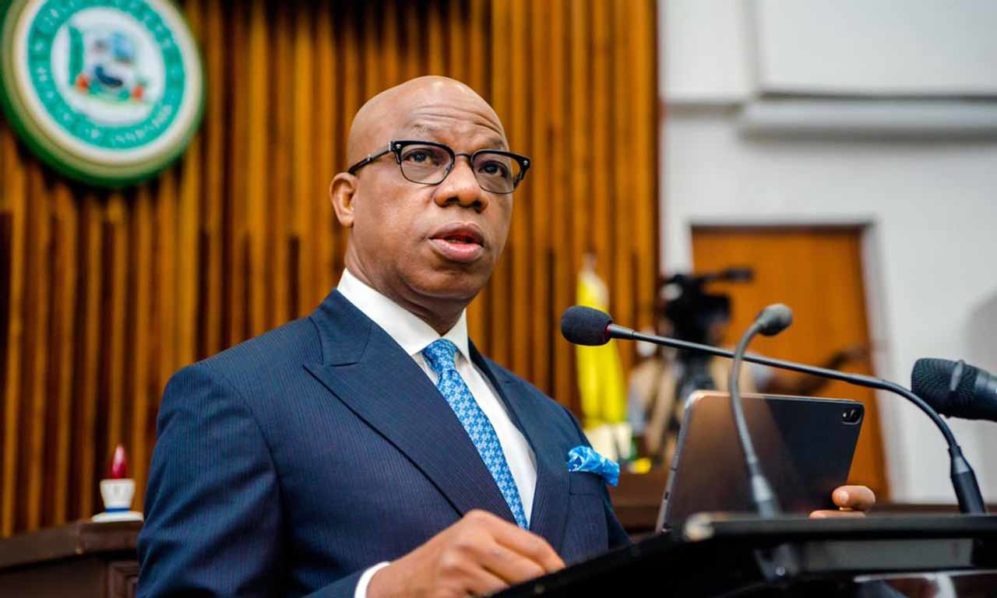
If you were an overthinker, you would by now have imagined what would become of Nigeria’s new railway stations in, say, five years.
Would the ACs still work? Would the paintwork still shine? Would the interiors be flooded with hawkers and beggars? Would the glass doors swing open once you give them a gentle push? Would the LED boards still flicker with numbers and letters to announce the routes and fares? Would you be able to do anything about this impending rot that you so viscerally fear? Oh, you have ideas for how to keep the collapse from happening? Of course, you do — isn’t that who are? A true Nigerian of fantastic ideas.
So what do you do with these brain sparks of yours? You tweet them or declare them on Facebook with your entire chest while hoping someone sees your brainwaves. For affect, you may even say a little prayer: God, please help Nigeria.
In the meantime, however, while God gets down to some long-term work on your hopes and aspirations regarding the maintenance of public infrastructure, the Lagos-Ibadan trains are keeping to their schedules.
These days, at least since July of 2021, it has become a thing to do an Ibadan-Lagos-Ibadan roundtrip by completely avoiding the predictable traffic chokehold of the Lagos-Ibadan expressway.
Leave Ibadan at 8am. Get to Lagos at 10:25am. Depart for Ibadan at 4pm. It’s like magic; who would have thought Nigerians would see such a miracle in this decade — the sort of thing that had been the exclusive lot of humans of New York, Shanghai, London, Singapore, Cape Town, Hong Kong, Seoul, Madrid, Moscow, Berlin — wait… is this still an exclusive list? Um. Let’s move on.
At the moment, the businesspeople who have travelled on the Lagos-Ibadan rail line are thinking of astounding possibilities. “This is going to be huge,” said Tunde Muraina, restaurateur and media entrepreneur in Ibadan. Ibadan is Tunde’s hometown and, lately, he’s been having more reasons to travel to Lagos for business. He thinks, soon, it wouldn’t be an impossible proposition to commute between Ibadan and Lagos for a 9-5 job. “Once the speed of the trains improves. And the number of runs increases.”
And you know what? This would be good for Lagos, which is bursting at the seams with it population of 17 million. The state, Africa’s most populated, is trying to decongest itself while remaining Nigeria’s commercial nerve centre.
As it gets more intentional with this goal, its closest neighbours — Ogun, Oyo and maybe Osun, Ondo and Ekiti — also stand to benefit.
Take Ogun, right next door, for instance. Last May, Governor Dapo Abiodun of Ogun and Babajide Sanwo-Olu of Lagos officially agreed, via legislative act no less, to work together to build the towns along the borders they both share. Their vehicle for making this happen is called the Lagos-Ogun Joint Development Commission (LOJDC).
Sanwo-Olu said, Lagos had nothing to lose “but a lot to gain by synergising efforts with Ogun State in the areas of Infrastructural development, (the development of boundary town roads, water works, mass transportation); as well as revenue and taxation (including PAYE remittances, and boundary town revenue management and collection).”
And why not? When those places — Sango-Otta, Akute, Alagboole, Ojodu, Agbado, Mowe, Isheri — that surround Nigeria’s commercial centre are finally prepped for better habitation, life will spring outwards and both Lagos and Ogun can share between them the juicy fruits of their investment.
People like me are giddy for this because, it’s like, finally, this no-brainer idea that has been there forever is coming to life. All it took is just about 45 years and two like-minded governors getting up to take serious action.
Thankfully, I’m not a governor from any of the other South Western Nigerian states of Osun, Ekiti, Ondo, and Oyo, or I would be vehemently jealous of those Ogun State people. Isn’t it enough that their state one-hundred-percent squats over Lagos on the map, greedily denying others any direct access to the nation’s wealthiest damsel? Now, they want to marry her, too? Goodness. The audacity.
Unless, I remember Odu’a Investment. Do you remember Odu’a Investment? It used to be such an intimidating mammoth of an enterprise that wouldn’t stop flaunting its sweeping tentacles in an endless stream of TV ads. Odu’a Investment has a magnificent history.
When it was founded in 1959, it was called the Western Nigeria Development Corporation. Four years later, it changed its name to Western States Industrial Investment and Credit Corporation. From these names, you can tell that it was meant to do what Lagos and Ogun are doing together now.
Even if Odu’a Investment is now a private company that is “run by an independent board of directors of seasoned professionals with vast experience in business and human resource management,” it’s still owned by all the South Western states, including Lagos.
Right now, Odu’a Investment’s subsidiaries are the Lagos Airport Hotel, Wemabod Estates, Western Hotels, Cocoa Industries Ltd, Glanvill Enthoven Insurance, E&O Power and Equipment Leasing Limited, and WestLink Integrated Agriculture. It also still reports part ownership of several businesses such as roofing products maker Nigerite, cement manufacturer Lafarge, SKG Pharma, Tower Aluminium, Great Nigeria Insurance, and Wema Bank — all of which are headquartered in Lagos.
Who knows what the privately held corporation’s plans are (or what its legal framework currently permits); but this good old company may still be the shortcut to the heart of Lagos for South Western Nigerian states not named Ogun.
What the LOJDC — may I propose LOJIC, please? — offers is a mega ecosystem inside which others can tap into the opportunities that is Lagos State. It’s like designing an open OS to trigger innovation and attract prodigious amount of funding. It is more than owning singular apps, which is what Odu’a Investment seems to be engaged in at the moment.
Eventually, with the promises of the LOJDC, Nigeria’s tech boom (tethered to Lagos), and charter cities concepts like Future Africa’s Talent City, a bolt of inspiration may hit a company like Odu’a Investment.
Talent City, said Future Africa founder Iyin Aboyeji, “is focused on attracting the talent that drives technology, innovation and the digital economy.” It sounds like killing three birds with one stone. Support Lagos in solving urban overcrowding, invest in tech, and spread the economic benefits of these ventures to states outside Lagos.
Right now, Odu’a Investment is making no significant play in Nigeria’s tech game, in spite of the ongoing “frenzy” of activity (according to Forbes) and the flood of venture funding in which the country has found itself. If it does choose to get in on the high stakes action, it could bring its owners, and the people who live in those states, closer to the Lagos jackpot.






